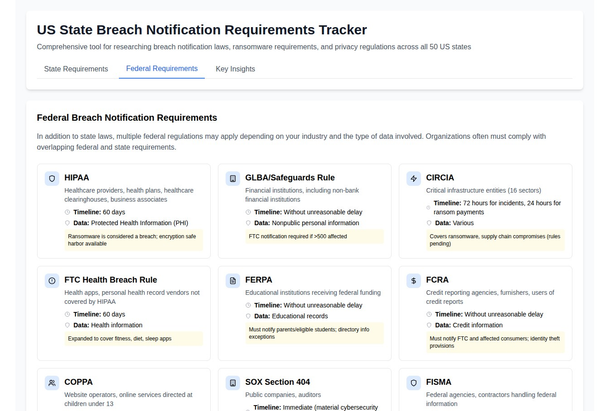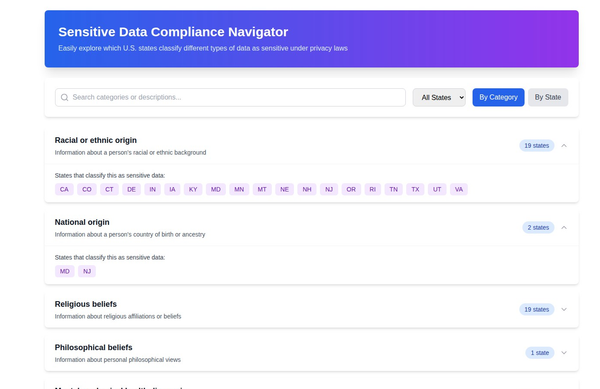In-Depth Analysis of the Maine Data Privacy and Protection Act (MDPPA)

The Maine Data Privacy and Protection Act (MDPPA), set to take effect on July 1, 2025, represents a significant advancement in consumer data privacy legislation in the United States. As Maine positions itself at the forefront of privacy protection, this legislation aims to provide robust consumer rights and impose stringent obligations on businesses handling personal data. This article explores the key components of the MDPPA, its implications for businesses, and the rights it affords to Maine residents.
Scope and Applicability
The MDPPA applies to businesses that collect, use, process, transfer, sell, or delete personal data of Maine residents. The law covers a broad range of entities, including third-party platforms, and is designed to regulate the handling of non-publicly available personal data that is "linked or reasonably linkable to" a Maine resident.
The MDPPA does not set a specific threshold for applicability based on revenue or number of consumers, meaning it applies broadly to any entity engaging in the specified data activities within the state.
Consumer Rights
The MDPPA grants Maine residents a comprehensive set of rights concerning their personal data, including:
- Right to Access: Consumers can request access to their personal data held by businesses.
- Right to Correction: Consumers can request corrections to inaccuracies in their personal data.
- Right to Deletion: Consumers can request the deletion of their personal data.
- Right to Data Portability: Consumers can obtain a copy of their personal data in a portable format.
- Right to Opt-Out: Consumers can opt out of data processing for targeted advertising, the sale of personal data, and profiling.
Additionally, the MDPPA emphasizes consumer control over sensitive data, requiring explicit consent for its collection and processing. Sensitive data includes information revealing race or ethnic origin, religious beliefs, health conditions, sexual orientation, and biometric data.
Business Obligations
Under the MDPPA, businesses must adhere to several obligations:
- Data Minimization: Limit the collection and processing of personal data to what is "reasonably necessary and proportionate" to provide or maintain a specific product or service requested by the consumer.
- Consent for Sensitive Data: Obtain affirmative consent before collecting or processing sensitive data.
- Privacy Notices: Provide clear and comprehensive privacy notices detailing data processing activities and purposes.
- Data Security: Implement reasonable security measures to protect consumer data from unauthorized access and breaches.
- Non-Discrimination: Ensure consumers are not discriminated against for exercising their rights under the Act.
Enforcement and Penalties
The Maine Attorney General is tasked with enforcing the MDPPA. The Act provides for both government enforcement and a private right of action, allowing individuals to sue for statutory damages of $5,000 per violation. This dual enforcement mechanism is designed to ensure robust compliance and deterrence against violations.
The inclusion of a private right of action is particularly significant, as it empowers consumers to seek redress independently, even when state resources may be limited.
Comparison with Other State Laws
The MDPPA is considered one of the strongest data privacy laws in the nation, with comprehensive consumer protections and stringent business obligations. It aligns with Maine's history of pioneering privacy legislation, such as its 2019 law restricting internet service providers from using customer data without consent.
Conclusion
The Maine Data Privacy and Protection Act sets a high standard for data privacy protection, emphasizing consumer rights and business accountability. As businesses prepare for the MDPPA's implementation, they must conduct thorough data audits, update privacy policies, and implement robust data protection measures. The MDPPA not only aligns with other state privacy laws but also introduces unique provisions that enhance consumer control over personal data. As the regulatory landscape continues to evolve, the MDPPA serves as a critical model for balancing innovation with privacy protection.
Citations:
[1] https://www.hinshawlaw.com/newsroom-updates-pcad-state-privacy-regulations-effective-july-1-2024.html
[2] https://www.upguard.com/blog/what-is-the-ocpa
[3] https://www.pierceatwood.com/alerts/new-england-state-consumer-data-privacy-bills-currently-under-consideration
[4] https://equinoxbusinesslaw.com/blog/legal-update-oregon-consumer-privacy-act/
[5] https://www.pressherald.com/2024/04/16/democrat-backed-data-privacy-bill-advances-out-of-committee/
[6] https://www.mainelegislature.org/legis/bills/getPDF.asp?item=1&paper=HP1270&snum=131
[7] https://statescoop.com/maine-strongest-data-privacy-law-2024/





